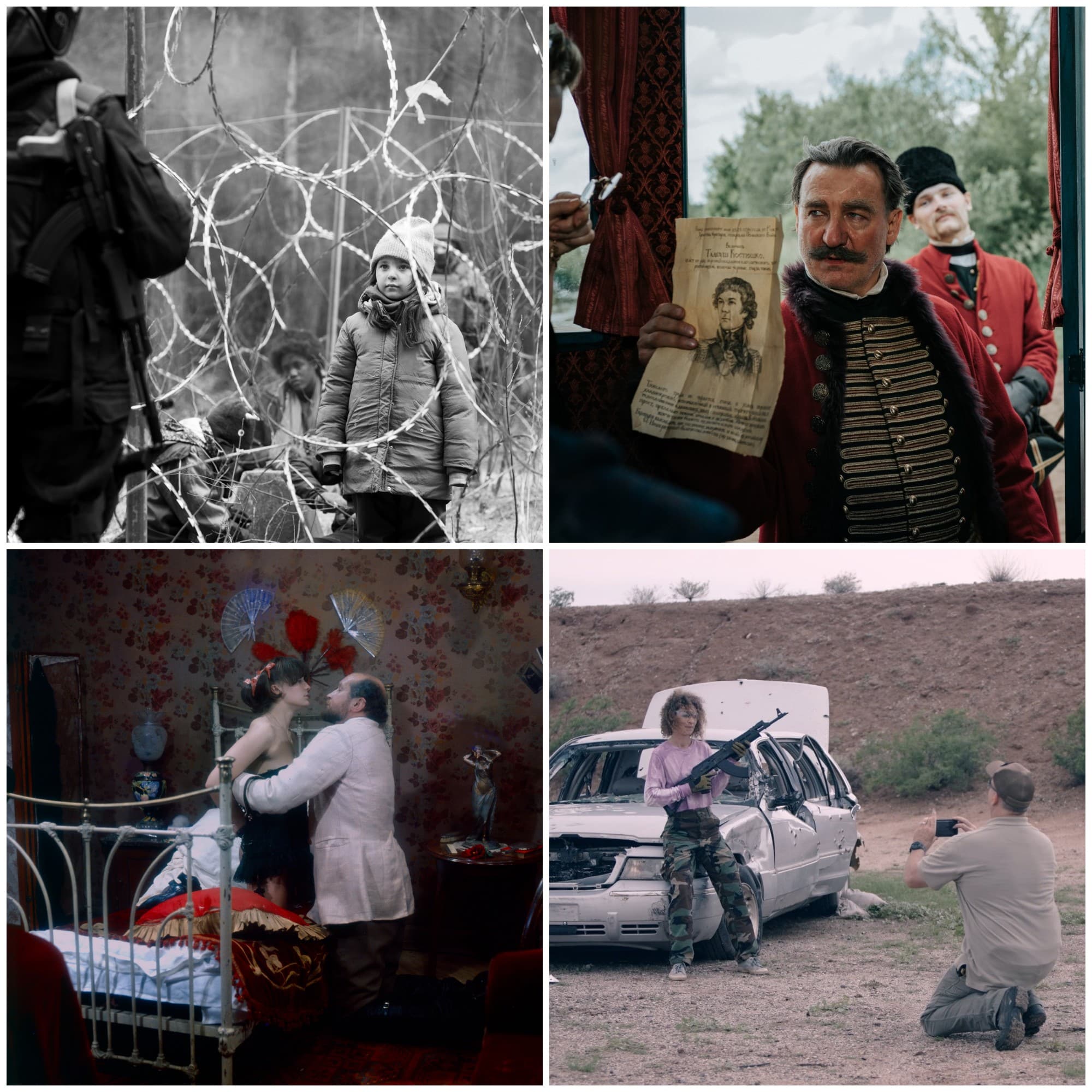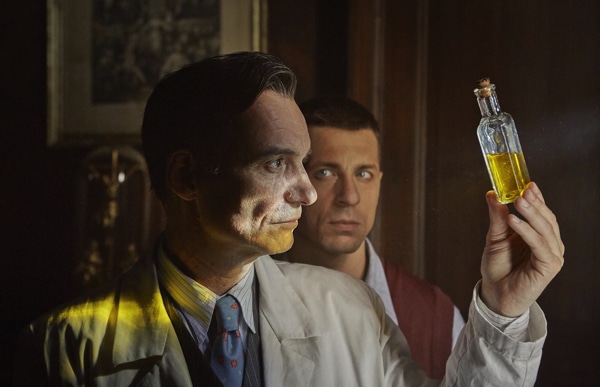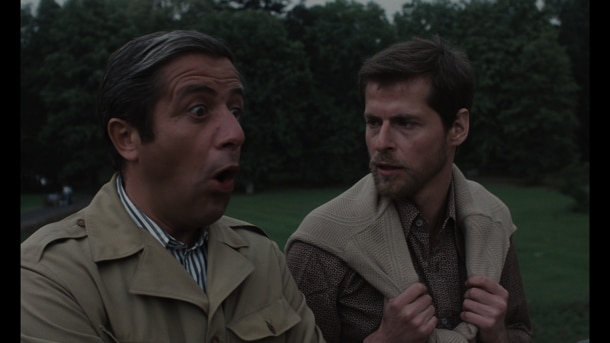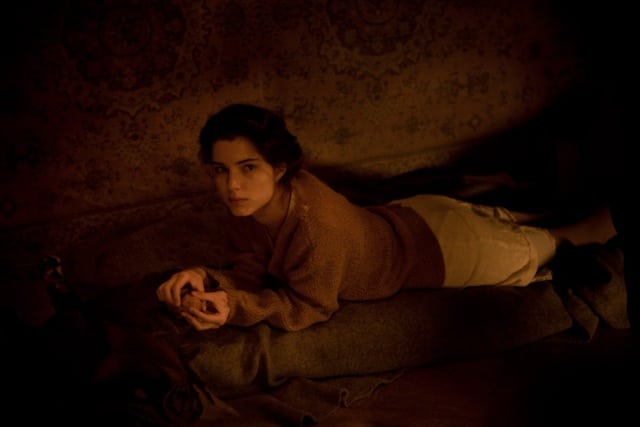Kinoteka Polish Film Festival is back from 6th March to 25 April the latest films from the festival circuit along with cult classics from the archives.
2025 also marks the UK/Poland Season organised by the British Council, the Adam Mickiewicz Institute and the Polish Cultural Institute in London.
During the six-month-long season, between March and November, 100 multi-artform events in 20 cities will serve to promote British culture in Poland. This year’s edition will offer a nationwide selection of films in collaboration with Klassiki, covering eight cities.
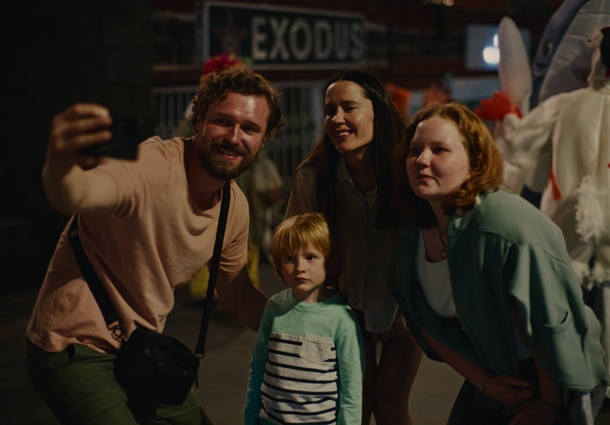
OPENING GALA
Kinoteka and the UK/Poland Season 2025 will open with a ceremonial screening of Under the Volcano (Pod wulkanem, 2024) at BFI Southbank on 6 March, followed by a discussion with the director, Damian Kocur whose observational second feature follows his award-winning Bread and Salt, (winner of the Golden Orange at Antalya Film Festival in 2022). Under the Volcano follows a Ukrainian family who become refugees during their summer holidays when the Russian invasion breaks out at home .
CLOSING GALA AND WOJCIECH HAS RETROSPECTIVE
The focus of this year’s retrospective (1 -25 April) is Polish director Wojciech Has, whose surrealist masterpiece The Hourglass Sanitorium will screen as the Closing Gala on 25 April at the ICA, followed by a musical performance by the Bestet Quartet, playing an arrangement influenced by the film. Has’ fans and new audiences will be able to watch his entire filmography including The Saragossa Manuscript (Rękopis znaleziony w Saragossie, 1964), the director’s acclaimed debut The Noose (Pętla, 1957) and the influential wartime drama Farewells (Pożegnania, 1958). To complement the season, an exhibition of Has film posters will take place at both venues.
Meanwhile over at the BFI IMAX the Quay Brothers’ immersive and dreamlike new feature film The Sanatorium Under the Sign of the Hourglass (2024) is a haunting new stop-motion adaptation of Bruno Schulz’s novella providing a fascinating counterpoint to the Has version at this year’s festival. Told through both puppet animation and live-action, the film finds a ghostly train transporting a man to a sanatorium by the edge of a mythic forest to visit his dying father.
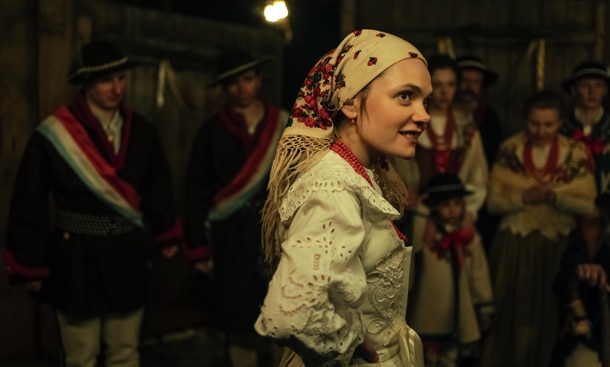
NEW POLISH CINEMA
The international festival circuit has been a hotbed of new Polish cinema this year. Expect to see the latest features such as Mara Tamkovich’s award-winning Tribeca docudrama Under the Grey Sky (Pod szarym niebem, 2024) inspired by the true story of reporter Katsiaryna Andreyeva, who was arrested in Belarus after covering peaceful protests following the 2020 elections.
White Courage (Biała odwaga, 2024, above) is set in Europe on the brink of war, when two brothers clash during the rise of Nazism. Another wartime drama, Irena’s Vow (2023) tells the story of Irena Gut Opdyke, the housekeeper of a Nazi officer who risked her life to save twelve Jewish workers when she discovered the nearby Tarnopol Ghetto was to be liquidated.
Adrian Panek’s engaging dramatised biography Simona Kossak (2024), follows the pioneering biologist Simona Kossak (1943-2007) as she transform from family misfit to ecological activist.
In Northern Poland, Wanda and Janek embark on a ‘make or break’ trip along the wintery Baltic coast in It Is Not My Film (To nie mój film, 2024) billed as a ‘comedy for the twenty-first century with a serious message’.
From Jan P. Matuszyński, the director of Leave No Traces, Minghun (2024), is an unusual film that sees father and son in law coming to terms with tragedy through the Chinese ritual of minghun (a post-mortem wedding, no less!).
DOCUMENTARY
Documentary has always been under the spotlight at Kinoteka: Agnieszka Zwiefka’s Silent Trees (Drzewa milczą, 2024), picks up on issues explored in Agnieszka Holland’s Green Border. This new observational documentary focuses on a Kurdish family stranded in a forest between Belarus and Poland where they become geopolitical pawns. Zwiefka’s emotionally freighted film arrives in the UK after enjoying success after a global tour of the festivals.
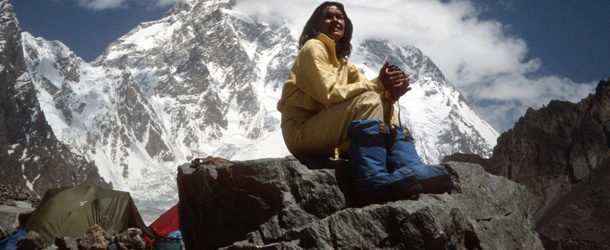
The true story of the first woman to scale the world’s highest mountains Wanda Rutkiewicz unfolds from her own perspective in The Last Expedition (Wanda Rutkiewicz: Ostatnia wyprawa, 2024). Directed by Eliza Kubarska (The Wall of Shadows) this award-winning exploration of the life of the mountaineering icon Wanda Rutkiewicz is both a mystery and a marvel with its stunning visual allure.
Last but not least, is Such Feeling (To uczucie, 2024), an LGBTQ documentary and first film for artist and choreographer Alex Baczyński-Jenkins follows a group of friends and activists in Warsaw.
KINOTEKA ON TOUR – IN PARTNERSHIP WITH KLASSIKI
For the first time, in 2025, Kinoteka will be partnering with Klassiki, the latest video-on-demand platform dedicated to showcasing the rich cinematic traditions of Eastern Europe and Central Asia will take you on an cinematic odyssey from London to screening venues in Birmingham, Hull, Leeds, Newcastle, Nottingham, Oxford and Sheffield. Films playing on the tour are Under the Volcano, Under the Grey Sky, It Is Not My Film, Silent Trees and Wojciech Has features The Saragossa Manuscript and Farewells.
POLISH CINEMA CLASSICS – THE HOLOCAUST ON FILM
The Holocaust lives on in the collective imagination, this year commemorating the 80th anniversary of the end of the Second World War. In tribute two Polish Holocaust films offer insight into how Nazi terror was depicted both in the immediate post-war period and during the Polish People’s Republic.
Wanda Jakubowska’s harrowing and groundbreaking The Last Stage (Ostatni etap, 1948) was the first film to be made about the Holocaust. Shot in Auschwitz-Birkenau barely two years after liberation, it follows the women prisoners of Auschwitz documenting the sheer horror of the camp, and ushering in a slew of cinematic representations of the Holocaust that continues to this day, eight decades later. Also screening is Passenger (Pasażerka, 1968), based on Auschwitz survivor Zofia Posmysz’s 1962 novel and was also shot at the former camp. The film was a labour of love for its director Andrzej Munk who tragically died in a car crash before completing it. His colleagues, convinced this film was a masterwork, pieced together his vision using the material he had already shot, still photographs and voice-over.
FAMILIAR STRANGERS: HOLLYWOOD AND BRITISH CINEMA IN POLISH POSTER ART
The Polish Poster School offers graphic insight into how students reinterpreted Hollywood in classics such as The Shining and The Return of the Jedi while navigating the harsh realities of Communist and post-Soviet Poland at a time when censorship, propaganda and surveillance were omnipresent. Blending raw intensity with haunting beauty, these posters reflect the psychological landscape of a society shaped by repression. Experience this powerful collection of film posters outdoors at King’s Cross’ Coal Drops Yard, which is free-of-charge and taking place from early March until 21 April.
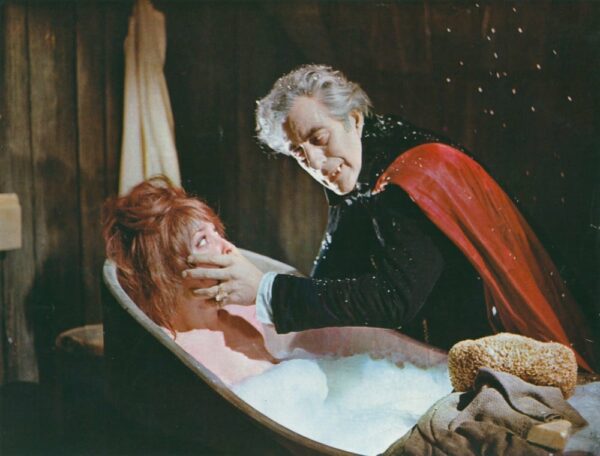
UNDYING SOUNDS: REINVENTING KOMEDA
An immersive experience at the crossroads of film, jazz, electronic music and audiovisual art taking place at the Southbank Centre, UnDying Sounds: Reinventing Komeda celebrates the enduring legacy of Krzysztof Komeda, a pioneer of Polish jazz and one of the most influential composers in European cinema, known for his scores for Rosemary’s Baby and The Fearless Vampire Killers.
FILM AND FASHION – ‘A’ FOR ANTKOWIAK
Over the forty years of its operation, Moda Polska, Poland’s most celebrated postwar fashion house, gathered around itself many outstanding creators and a large group of models before its untimely demise in the late 90s. In 1998, Jerzy Antkowiak bought the collections of the fashion house and years later, during the celebration of his eightieth birthday, exhibited the collections to his guests. It was then that the idea of creating the documentary film ‘A’ For Antkowiak was born, a film that tells the story of a fashion designer working under the difficult reality of the Polish People’s Republic and the “Modapolska” work that has stood the test of time.
Following the screening there will be a Panel Discussion and Q&A with Jerzy Antkowiak and producer of the Film Tomasz Ossoliński.
KINOTEKA 2025 | 6 MARCH – 25 APRIL 2025

